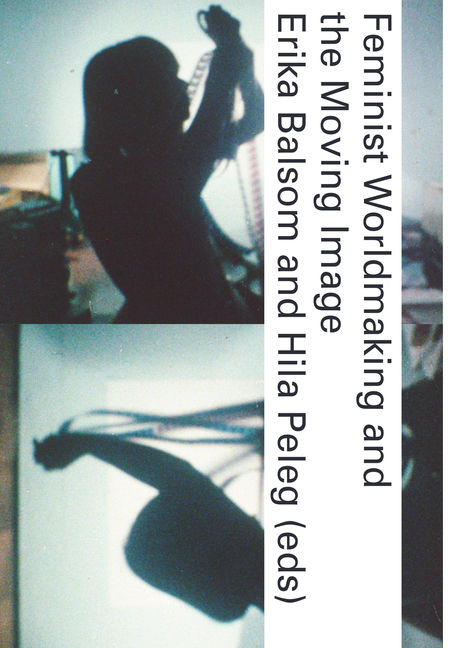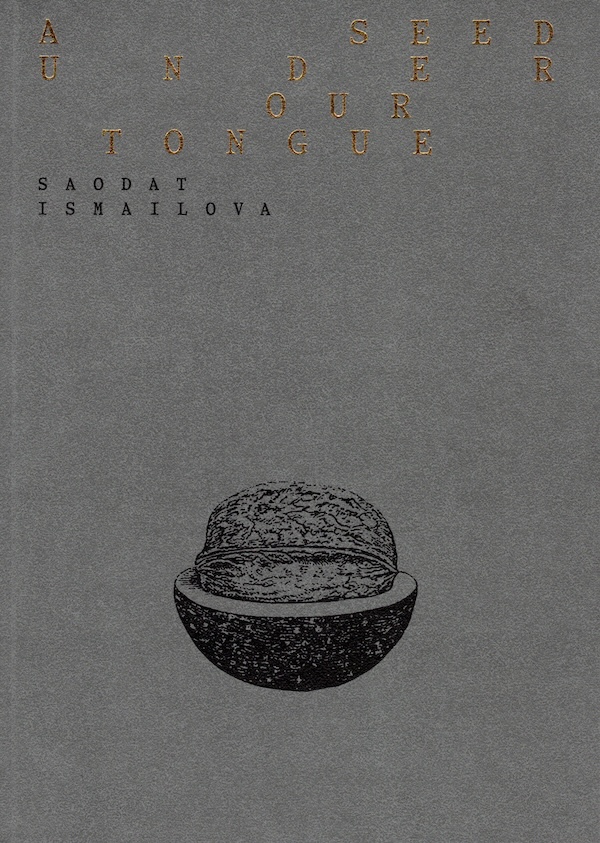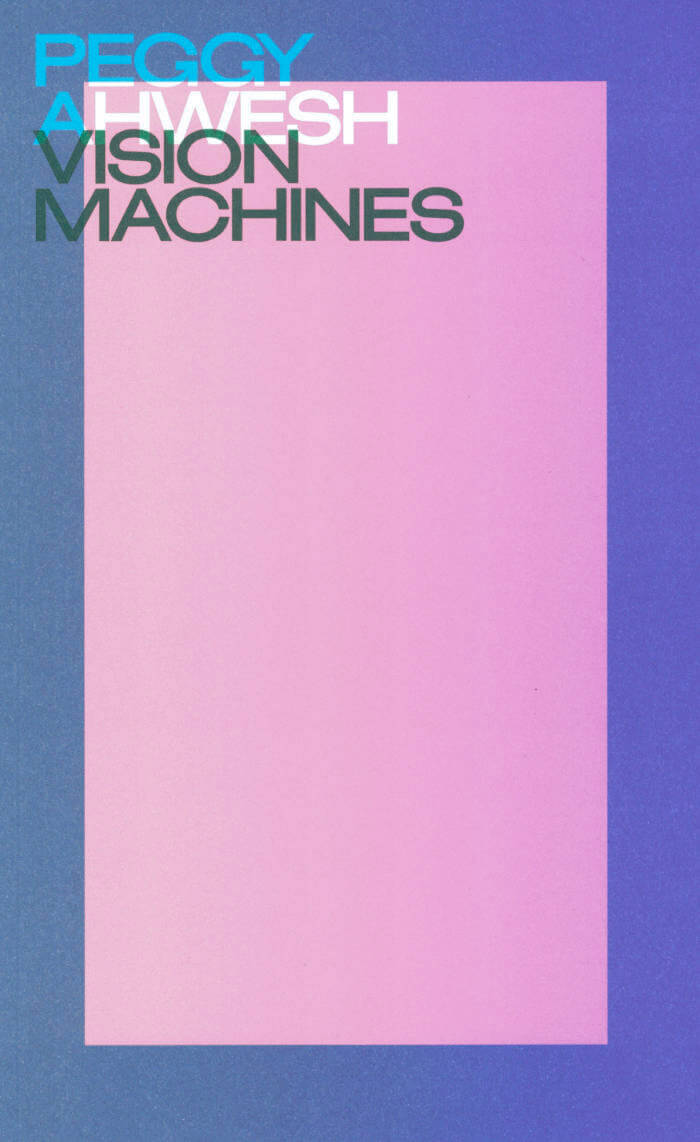Erika Balsom
Erika Balsom

Ten Skies
Ten shots of the sky, each ten minutes long. That’s all it takes to describe James Benning’s film from 2004. And yet, this simplicity conceals a rich and absorbing drama, one of the great works of the American avant-garde. Scholar and critic Erika Balsom unfolds its hidden intricacies of meaning, extending its lessons with crystalline prose, a comparable sense of depths, and an exhilarating, maximalist intimation of what criticism can do and become. She brings you from the film itself into the mind of the artist, through philosophical musings and art historical scholarship. The book is part of a Decadent Editions series of 10 books about 10 films.

Feminist Worldmaking and the Moving Image
This book offers intersectional, intergenerational, and international perspectives on nonfiction film- and videomaking by and about women, examining practices that range from activist documentaries to avant-garde experiments. Concentrating primarily on the period between the 1970s and 1990s, the contributions revisit major figures, contexts, and debates across a polycentric, global geography. They explore how the moving image has been a crucial terrain of feminist struggle—a way of not only picturing the world but remaking it.
The contributors consider key decolonial filmmakers, including Trinh T. Minh-ha and Sarah Maldoror; explore collectively produced films with ties to women's liberation movements in different countries; and investigate the cinematic expressions of tensions and alliances between feminism and anti-imperialist struggles. They grapple with the need for a broader more inclusive definition of the term "feminism"; meditate on the figure of the grandmother; reflect on realist aesthetics; and ask what a feminist film historiography might look like.
The book, generously illustrated with film stills and other images, many in color, offers ten original texts, two conversations, and eight short essays composed in response to historical texts written by filmmakers. The historical texts, half of which are published in English for the first time, appear alongside the essays.
Contributors
Helena Amiradżibi, Madeleine Bernstorff, Teresa Castro, Counter Encounters (Laura Huertas Millán, Onyeka Igwe, Rachael Rakes), Ayanna Dozier, Forough Farrokhzad, Safi Faye, Devika Girish, Elena Gorfinkel, Haneda Sumiko, Shai Heredia, Juliet Jacques, Sarah Keller, Nzingha Kendall, Julia Lesage, Beatrice Loayza, Janaína Oliveira, Lakshmi Padmanabhan, Yasmina Price, Elizabeth Ramírez-Soto, Pooja Rangan, Lis Rhodes, Sara Saljoughi, Rasha Salti, Isabel Seguí, Chick Strand, Monika Talarczyk, Trinh T. Minh-ha, Françoise Vergès, Claudia von Alemann, Mitsuyo Wada-Marciano, Shilyh Warren, Giovanna Zapperi
And more

A Seed Under Our Tongue
Set in various Uzbek landscapes spanning time and place, Ismailova's films weave a storied tapestry of ancestral folklore, traditional craft and colonial resistance. By Saodat Ismailova, with Roberta Tenconi, Erika Balsom, Marcella Lista, Dilda Ramazan and Rolando Vázquez.
Uzbek artist Saodat Ismailova (born 1981) is part of the first generation of Central Asian filmmakers following the collapse of the Soviet Union. Her films emphasize long shots that evoke the aesthetics of slow cinema, often combined with archival footage and installed within textile sculptural elements drawn from vernacular traditions, as in the exhibition at Pirelli Hangar Bicocca in Milan, which this volume refers to. Exploring the collective memories of her home region, Ismailova interweaves myths with personal dreams to address social issues such as women's emancipation, identity and the colonial past.

Dreams of a Dreamless Night
The publication is the first institutional monograph on the multimedia practice of artist and director Ali Cherri. It aims to highlight the constellation of ideas, themes, and formal concerns running through his most recent, highly significant projects.
Edited by Alessandro Rabottini and Leonardo Bigazzi, with Bianca Stoppani, this book provides an overview of the artist's output over the past three years, teasing out both new strands for interpretation and formal links between his films, videos, sculptures, drawings, and installations.
Texts by: Cecilia Alemani, Erika Balsom, Étienne Bernard, Leonardo Bigazzi, Ali Cherri, Lorenzo Giusti, Stefanie Hessler, Priyesh Mistry, Alessandro Rabottini, Stefan Tarnowski.
Video and visual artist Ali Cherri (born 1976 in Beirut, lives and works in Paris and Beirut) received a BA in graphic design from the American University in Beirut in 2000, and an MA in performing arts from DasArts, Amsterdam, in 2005. His current project looks at the place of the archaeological object in the construction of historical narratives.

What happens between the knots?
Anthony Huberman, Jeanne Gerrity
The third volume of the Wattis Institute's annual reader is informed by themes found in the work of Cecilia Vicuña, including ecofeminism, indigenous forms of knowledge, poetry and politics, dissolution and extinction, exile, dematerialization, regeneration, and environmental responsibility.
The Wattis Institute's annual reader, A Series of Open Questions, provides an edited selection of perspectives, images, and references related to the Wattis's year-long "On our mind" research seasons. Each volume includes newly commissioned writing by members of the research season's core reading group, as well as text and visual contributions by a diverse range of other artists and writers. The title of each reader takes the form of a question and becomes, as new books are published, a gradually evolving series of open questions.
Contributions by Gloria Anzaldua, Elvira Espejo Ajca, Erika Balsom, María Berrios, Marisol de la Cadena, Lynne Cooke, Miho Dohi, Ricki Dwyer, Silvia Federici, Tonya Foster, Phillip Greenlief, Sheroanawe Hakihiiwe, Brian Karl, Dionne Lee, Zoe Leonard, Rosemary Mayer, Koyoltzintli Miranda-Rivadeneira, Denise Newman, Thao Nguyen Phan, Frances Richard, Dylan Robinson, Abel Rodriguez, Oscar Santillan, Alessandra Troncone, Anna Lowenhaupt Tsing, Ignacio Valero, Cathrine Veikos, Cecilia Vicuña, Diego Villalobos, Jacopo Crivelli Visconti, Carla Zaccagnini.

Vision Machines
Over the last four decades, American artist and filmmaker Peggy Ahwesh has forged a distinctive moving image practice in the ruins of originality and authority. monWith contributions from Erika Balsom, Elena Gorfinkel, Tendai Mutambu, John David Rhodes and Shola von Rheinold, Peggy Ahwesh: Vision Machines explores how she has extended and contested the paradigm of experimental cinema.
Since the early 1980s, Peggy Ahwesh (born 1954 in Canonsburg, Pennsylvania) has produced one of the most heterogeneous bodies of work in the field of experimental film and video. A true bricoleur, her tools include narrative and documentary styles, improvised performance and scripted dialogue, synch-sound film, found footage, digital animation, and crude Pixelvision video. The work is primarily an investigation cultural identity and the role of the subject, in various genres. Ahwesh work with subversively amateur forms, and also a discourse that yielded traditionally female-gendered themes like home and family, relationships, and confessions, which she appropriated as scenarios. Her practice insists on political and social topicality, handled with theoretical and formal rigor, with a nod to popular culture forms. She draws the audience into the world and traditions of avant-garde film and video, where, as she has remarked, "there's nothing to prove and no money to make," only the pleasures of the text.

Where is Cinema
This book is compiled of portraits of film initiatives from around the world, interwoven with conversations with adventurers who have rebooted movie theatres or built them up from the ground in the hope that it can be an inspiring compendium for future cinema builders, filmmakers, film curators and film lovers.
Anouk De Clercq in conversation with Verena von Stackelberg, Ana López Ortego and Daniel Bejarano, Ilona Jurkonytė and Ugnė Marija Andrijauskaitė, Adam Pugh, Thomas Liu and Silja Espolin Johnson, Erika Balsom, Beatrice Gibson, María Palacios Cruz and Ben Rivers, Heather Lane and Mia Ferm.
The author is an artist and filmmaker based in Brussels and Berlin. In her work, she explores the potential of audiovisual language to create possible worlds. She is affiliated as an artistic researcher to the School of Arts University College Ghent, and a founding member of Cinema Nova, Monokino and Auguste Orts.

Film in the Present Tense
K.Schroedinger, D. S. Phillips and 1 more
This book brings together contributions from participants and guests of Film in the Present Tense – International Symposium on Current Developments in Analog Film Culture, held in Berlin. It reflects a contemporary discussion around the use, value and purpose of analogue film from a multiplicity of perspectives: artists, filmmakers, scholars, archivists, curators, technicians and manufacturers. Film in the Present Tense intends to provide a documentation of the collective momentum that characterized the symposium and it responds to the persistent desire to keep talking about analogue film.
Organized by LaborBerlin in collaboration with Filminstitut Udk Berlin.
Author(s): (ed.) L.Greenfield, D. S. Phillips, K.Schroedinger
Contributors: Nicola Baldini, Erika Balsom, Petra Belc, Christa Blümlinger, Britt Al-Busultan, Anja Dornieden, Juan David Gonzáles Monroy, Guy Edmonds, Scott Fitzpatrick, Tiago Ganhão, Sally Golding, Luisa Greenfield, Philip Hoffman, Emmanuel Lefrant, Olga Moskatova Aurélie Percevault, Deborah S. Phillips, Martin Reinhart, Nicolas Rey, Julian Ross, Katia Rossini, Kerstin Schroedinger, Guy Sherwin, Björn Speidel, Peter Taylor, Esther Urlus, Stefanie Weberhofer, Philip Widmann, Zero Pixel, Ulrich Ziemons